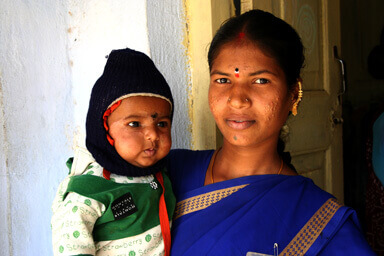John BoslegoPATH
John Boslego is Director of Global Vaccine Development at PATH, a global nonprofit dedicated to ending health inequity.
In this guest post, Dr. John Boslego, director of PATH’s Vaccine Development Global Program, writes about an innovative partnership between the United States and India to develop an oral vaccine against rotavirus diarrhea.
I recently had the pleasure of attending an international symposium on rotavirus vaccines where the government of India’s Department of Biotechnology (DBT) and the Indian vaccine manufacturer Bharat Biotech announced positive results from a Phase III clinical trial of an oral rotavirus vaccine that was developed and manufactured in India. Data from the trial showed the vaccine, ROTAVAC®, to be safe and effective in protecting infants against severe rotavirus diarrhea, the most lethal cause of childhood diarrhea.

However, what’s most extraordinary about this announcement actually may not be the results themselves, but the long and unique road that ROTAVAC® traveled to reach this point. This vaccine is the product of an innovative partnership between the United States and India, involving renowned experts from a range of agencies and sectors across the two countries.
The vaccine originated from an attenuated (weakened) strain of rotavirus that was isolated from an Indian child at the All India Institute of Medical Sciences in New Delhi in the mid-1980s. Since then, partners in the vaccine’s development have included DBT, Bharat Biotech, the US National Institutes of Health (NIH), the US Centers for Disease Control and Prevention (CDC), Stanford University School of Medicine, and PATH. Each group has provided its own contribution to the project, ranging from technical assistance on vaccine development and manufacturing the vaccine batches used in clinical trials, to guidance on designing and implementing clinical trials that meet international standards. With the development costs shared by several partners, Bharat Biotech was able to commit to a price of US$1.00 per dose for ROTAVAC®. As such, Bharat Biotech plans to register the vaccine for use in India first. If licensed by the Indian regulatory authority, the vaccine will be a more affordable alternative to the rotavirus vaccines already on the market.
This represents an important scientific breakthrough against severe rotavirus diarrhea, responsible for approximately 100,000 deaths of small children in India each year. If licensed, this vaccine could save the lives of thousands of children each year in the country. Bharat Biotech also plans to submit ROTAVAC® for prequalification by the World Health Organization, so it may be procured for subsidized use in the developing world, giving it the potential to have an enormous impact on global public health by reducing rotavirus-related illness and deaths worldwide.
I’m proud of the role that PATH has played in reaching this incredible milestone, and I am particularly impressed with how this truly innovative approach to a vaccine development partnership has resulted in the production of a safe and efficacious new rotavirus vaccine, ROTAVAC®.